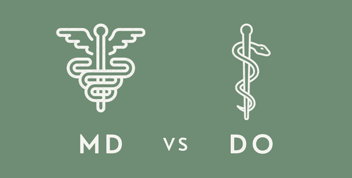Navigating SAT and ACT Requirements for BS/MD, BA/MD, and Direct Medical Programs

Standardized testing has long been a cornerstone of the college admissions process, and this holds true for the highly competitive BS/MD, BA/MD, and direct medical programs as well. These unique dual-degree programs, which combine undergraduate education with medical school, offer a streamlined path to a career in medicine for ambitious and talented students. As you explore the possibilities of a BS/MD program, understanding the standardized testing requirements is crucial to your success in the application process. In this blog post, we will delve into the various exams that students must navigate, including the SAT, ACT, and AP exams, to secure their spot in these prestigious programs. We'll guide you through the world of standardized testing requirements for BS/MD, BA/MD, and BS/DO programs and help you prepare for your upcoming applications.
Can I submit both SAT and ACT scores for a BS/MD program application?
If you're considering applying to a BS/MD program, you may be wondering if you can submit both your SAT and ACT scores. The answer is that it depends on the specific program's requirements. Some programs may require one test over the other, while others may accept both. It's important to thoroughly research the requirements for each program you plan on applying to. Keep in mind that submitting both scores may also show your flexibility and preparation for the rigorous curriculum ahead in the program. Ultimately, the key is to put forth your best effort and showcase your academic abilities to increase your chances of acceptance.
Are there any specific subject tests or AP exams that are required or recommended for BS/MD programs?
When it comes to applying for BS/MD programs, many students wonder if there are any specific subject tests or AP exams required or recommended. While there is no one-size-fits-all answer to this question, it's important to note that each program will have its unique admissions criteria. Some may require or recommend specific subject tests or AP exams, while others might weigh other factors, such as extracurricular activities, clinical experience, and personal statement. Therefore, it's crucial for students to research each program carefully and understand what they are looking for in an ideal candidate. By doing so, students can better prepare themselves for a successful application process and ultimately, achieve their dream of becoming a medical doctor.
How to decide whether to take the SAT or ACT or both
Many students often wonder which standardized test, SAT or ACT, they should take for admission to BS/MD programs. While the regional popularity of the tests varies, both exams are equally accepted across the country. Here are the main differences between the two exams to help you decide which one to take:
- Test Content: The ACT emphasizes math and science reasoning, while the SAT places more focus on vocabulary, critical reading, and writing abilities. The SAT's essay section is optional, whereas the ACT essay is required.
- Test Format: The SAT is longer, lasting 3 hours and 50 minutes, while the ACT lasts 2 hours and 55 minutes. The SAT has fewer questions overall, but they are generally more challenging and require critical thinking.
- Scoring: The SAT is scored on a scale of 400-1600, with separate scores for reading and writing and math. The ACT is scored on a scale of 1-36, with separate scores for English, math, reading, and science.
- Guessing Penalty: The SAT has a guessing penalty, where a quarter of a point is deducted for each incorrect answer, whereas the ACT does not penalize guessing.
To decide which exam to take, it is recommended that you take a practice exam of both the SAT and ACT. See which one you are more comfortable with and score higher on, and then focus on studying for that exam. If you have taken one of the tests multiple times and are not satisfied with your scores, consider trying the other test. Ultimately, your performance on the test is just one factor in the admissions process, and BS/MD programs consider a range of factors when making their decisions.
What is the best preparation for the ACT or SAT?
Preparing for standardized tests can be a daunting task, especially when applying to BS/MD programs. However, with the right approach and practice, you can improve your test scores and increase your chances of getting accepted into your desired program. Here are some tips to help you prepare for standardized testing:
- Start early: It's recommended that you start preparing for standardized tests as early as possible, ideally in 9th or 10th grade. This will give you enough time to practice, identify areas where you need improvement, and work on them.
- Take practice tests: Taking practice tests is an excellent way to familiarize yourself with the format and content of the test. The official SAT study guide has eight official SAT practice tests that you can use to prepare.
- Create a study plan: Make a study plan that includes small amounts of studying nightly to help you stay on track and ensure that you cover all the material you need to know.
- Focus on your weaknesses: Identify the areas where you need to improve and focus your studying efforts on those areas. This will help you make the most out of your study time and maximize your chances of success.
- Take advantage of free online resources: Many online resources like Khan Academy offer free practice tests, video lessons, and other tools to help you improve your test scores.
- Take breaks: Taking short breaks every hour or so while studying can help you avoid burnout and stay refreshed.
- Take care of yourself: Getting enough sleep, exercising regularly, and eating healthy foods can help reduce stress and improve your ability to study effectively.
Remember that while standardized tests are an essential part of the BS/MD admissions process, they are only one factor considered in admissions decisions. Other factors like GPA, extracurricular activities, essays, letters of recommendation, and interview performance are also important in the admissions process. So, make sure you put in the effort to excel in all areas and maximize your chances of getting accepted into your desired program.
Do you still need to take the SAT/ACT to gain admission to a BS/MD or DO program?
Many colleges and universities in the US have become test-optional or test-blind, meaning they do not require standardized test scores for admission. However, this is not the case for BS/MD programs. In this blog, we will explain why this is the case and discuss the target/minimum scores to be a competitive BS/MD applicant.
Medicine is a field that involves multiple-choice testing, from the MCAT in undergrad to the USMLE in medical school, specialty-specific board exams in residency, and recertification exams as a practicing physician. For this reason, standardized testing in high school plays an important role in the BS/MD admissions process. Strong scores can demonstrate your academic readiness for a rigorous undergraduate and medical school curriculum. Additionally, the SAT/ACT are designed to measure a student's knowledge and skills in reading, writing, science, and math, all of which are essential for success in a BS/MD program.
What are the minimum and average SAT/ACT scores for BS/MD programs?
While standardized tests are challenging and may not feel like an accurate representation of your knowledge, they give admission committees a way to directly and easily compare students regardless of their background, school, or location. A good benchmark for BS/MD programs is to aim for the 95th percentile or higher, which would mean an SAT score of 1480 or above (out of 1600) or an ACT composite score of 33 or above (out of 36). The most competitive applicants have scores of 1550 or 34 and above. For BS/DO programs, the range of competitive scores is typically 1400-1500 and 31-33.
It's important to keep in mind that standardized test scores are just one aspect of the admissions process. Admission essays, grades, extracurricular activities, demonstrated interest in the medical field, research experience, letters of recommendation, and interview day all play a significant role.





